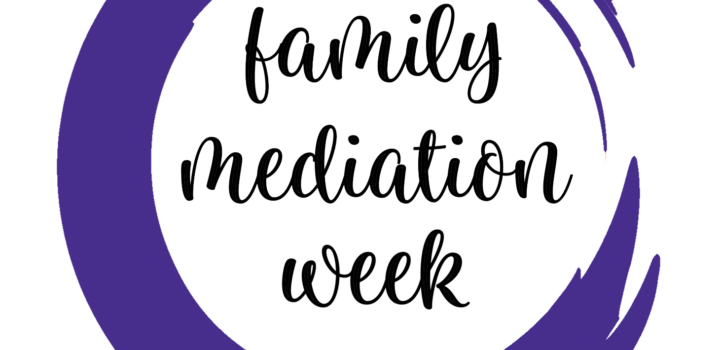Mediation and arbitration are two key processes used to help resolve family situations out of court. Whilst these processes are polar opposites, they can complement each other and are often best approached in tandem.
What is Arbitration?
Arbitration is best described as private law and involves you and your former partner choosing a third-party arbitrator, who is an expert in their field, to adjudicate the dispute between you. The arbitrator sits in the place of a judge in court and will listen to the facts and evidence. They will hear your matter impartially and fairly before coming to a determination that is lawfully correct and binding.
A key point of arbitration is that you decide the ambit of the dispute. In a court process, the judge will always review everything in the round and may ignore personal agreements that you and your former partner have already made when determining a final settlement. However, in arbitration, if you’ve mutually agreed on 7 out of 10 decisions, the arbitrator will honour these agreements and just help resolve the remaining points. Arbitration can either be an in-person hearing or can simply be completed on paperwork.
What are the benefits of Arbitration?
There are many benefits of arbitration, including it being a bespoke process tailor-made for you and your partner’s situation.
Unlike the court, not only do you have significant input as to who the arbitrator may be, but you also have more control over the timing of the process, so that it works best for you, your children and your respective needs. Arbitration is effective simply because it can be held quickly and avoids the long drawn-out court process; which can be costly both in terms of emotional wear and tear, as well as on the bank balance. Arbitration hearings are generally significantly quicker than court-based hearings so what may be a 2-day court hearing, would only be a 1-day arbitration, helping to save significant funds.
Whilst it’s helpful to have a barrister or solicitor in arbitration, you can represent yourself and as a private process, the arbitrator will do his or her best to ensure a level playing field and ensure that your case is properly heard.
When selecting your arbitrator you’re guaranteed a highly-trained expert, plus, you can specifically choose an expert that specialises in your specific case requirements. Although you may not like the decision that the arbitrator eventually comes to, at least you had your input into selecting the arbitrator and are confident that they had the skills and expertise to reach their final decision.
Arbitration is also a more comfortable process for all parties involved as it’s less formal than going to court.
What is mediation?
Mediation is a process where two parties, who are still able to talk to each other, wish to come to an agreement between themselves to resolve their dispute. A mediator’s role is to facilitate a conversation between them and keep negotiation on track; avoiding roadblocks that can happen when parties are speaking without a mediator.
The mediator’s duty isn’t to provide legal advice or to be heavily interventionist. They’re there to help you come to an arrangement that’s suitable for you both and meets yours, and your children’s needs. The mediator may warn you if any proposals are unrealistic or that they think you may have trouble getting a judge to agree with what you’re proposing.
Mediation offers a bespoke, flexible, and confidential process enabling you to explore your options and come to an agreement which, if not happy with, you can both live with.
What are the benefits of mediation?
One of the key benefits of mediation is that you have taken control of your own life and made an agreement yourself that you’re happy with. Mediated agreements are generally highly successful and parties who have been part of the process and committed to the outcome, generally adhere to their mediated agreements.
If you have children, research shows that agreements reached in mediation lower the tension that otherwise might exist between the parties meaning that they’re unable to step back from the difficulties that caused them to separate in the first place and co-parent significantly more effectively.
Mediation is also not burdened by needing to follow the exact outcomes that a court would result in. Therefore the mediated solution can be very much tailored to your individual circumstances and what will work for you both, rather than strictly led by what the law would impose upon you. It’s also an opportunity to discuss matters that, whilst important to you both as parties, are relevant to the law and would not be considered by the court.
What are the main differences between Arbitration and Mediation
Arbitration is directive. The arbitrator will make a decision about you and your lives which is binding upon you whereas in mediation, the decisions about the future are made by the parties themselves – the mediator cannot bind you to anything. Whilst the mediator will produce a written record of your agreement, that agreement isn’t binding and needs to be converted to a court order to have any binding effect. Whilst both are out of court processes and are voluntarily entered into they’re effectively at opposite ends of the dispute resolution spectrum.
Mediation and arbitration often work best together. If you start within your mediation process and are able to agree on some points and not others , you can begin arbitration to finish dealing with those points, whilst still preserving the agreement that you have reached. Whereas in a court, you would need to start again.
Indeed, one of the key benefits of mediation and arbitration is that parties who want the flexibility of trying to resolve matters themselves can have confidence in knowing that if they’re unable to, there’s alternative processes available to them, including schemes like the Certainty Project which provides a clear blue print for parties to move through arbitration and mediation to a highly successful conclusion to their disputes.
Julian Bremner is a qualified financial arbitrator. Please contact him or another specialist family law expert in our other offices if you would like more information on the topics raised in this blog or are looking to find out more about dispute resolution options.
















